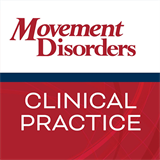
2026 MDS-ES Focused Workshop
Parkinson's Disease Decoded: Genes, Environment, and the Epidemiological Challenge
May 8-10, 2026 in Lübeck, Germany
Join leading experts in the field to explore the complex interplay of genetics, environmental exposures, and emerging epidemiological trends in Parkinson’s disease (PD).
Through a mix of plenary lectures, interactive panel discussions, and abstract presentations, you will gain critical insights into the biological, molecular, and clinical dimensions of PD, as well as the translational challenges in diagnosis, treatment, and prevention.
May 8-10, 2026
Lübeck, Germany
Venue: Audimax Lübeck,
University Hospital Schleswig-Holstein
Abstract submission have closedSubmit an abstract for poster presentation during the Focused Workshop. Poster presentations will be Saturday, May 9, 2026 (day 2 of the workshop). Abstracts should relate to topics in line with the event program. |


Registration Fees
Members: $300 USD
Members - Junior / HP / Basic Science / No Fee: $225 USD
Non-Members: $400 USD
Member rate
Join MDS to receive the discounted rate. Members also receive befenfits including access to the MDS journals, leading educational opportunities, and more.
Travel grant
Attendees in no-fee countries can apply for a travel bursary.
Deadline: January 31, 2026
Schedule
| Friday, May 8, 2026 — DAY 1 |
Session 1:
Parkinson's Disease: A tale of increasing complexity
Chair: Jean Christophe Corvol, MDS-ES Chair (Paris, France)
13:15 - 15: 15
Epidemiology of Parkinson’s disease: Is this a new pandemic?
Yoav Ben-Shlomo (Bristol, United Kingdom)
Why do so many PD trials fail? Current pitfalls in patients' stratification and model-to-human translation
Margherita Fabbri (Toulouse, France)
Panel Discussion
Session 2:
Main genetic determinants in Parkinson’s disease
Presented in collaboration with European Academy of Neurology (EAN)
Chair: Kathrin Brockmann (Tübingen, Germany)
15:15 - 17:15
Worldwide incidence, mutational spectrum and phenotypes of Parkinson’s disease genes
Enza Maria Valente (Pavia, Italy)
Genetic and environmental modifiers of LRRK2-PD
Joanne Trinh (Luebeck, Germany)
Multilevel modulation of GBA penetrance
Rosanna Asselta (Milan, Italy)
Panel Discussion
Session 3:
MDS-ES & EAN Joint Session: Clinical, Imaging, and Therapeutic Aspects of Genetic Parkinson’s Disease
Chair: Alessandro Tessitore, Co-Chair, EAN Scientific Panel on Movement Disorders
17:15 - 19:30
Rare forms of genetic Parkinson’s: An approach
Kailash Bhatia (London, United Kingdom)
Neuroimaging biomarkers and impact of genetics
Irena Rektorova (Brno, Czech Republic)
Impact of genetics in neuromodulation therapy in Parkinson’s diseases
Elena Moro, (Grenoble, France)
Panel Discussion
 European Academy of Neurology (EAN) Information and Opportunities
European Academy of Neurology (EAN) Information and Opportunities
EAN President
Event:
Welcome Reception
19:30 - 20:30
Drinks and light appetizers will be served.
| Saturday, May 9, 2026 — DAY 2 |
Session 4:
Genome-wide complexity of Parkinson’s disease risk
Chair: Thomas Gasser (Tübingen, Germany)
8:00 - 10:30
Innovative strategies to tackle Parkinson’s disease genetics
Christine Klein (Luebeck, Germany)
PD-GWAS and genome-wide determinants of phenotypic traits
Huw Morris (London, United Kingdom)
Epigenetic modifiers
Lasse Pihlstrom (Oslo, Norway)
Panel Discussion
Session 5:
α-synuclein-mediated pathways to disease
10:30 - 12:30
Chair: Daniela Berg (Kiel, Germany)
Pathological α-synuclein and mitochondrial damage
Speaker TBA
Transcriptomic signatures in synucleinopathies
Mina Ryten (London, United Kingdom)
Dysfunction of clearance systems and α-synuclein toxicity
Friederike Zunke (Erlagen, Germany)
Panel Discussion
Plenary Lecture:
Toward a biological definition of neuronal and glial synucleinopathies
Guenter Hoglinger (Munich, Germany)
12:30 - 13:15
Poster Session / Oral Platform Presentations
Chair: Roberto Erro (Salerno, Italy)
13:45 – 14:45
Session 6:
Environmental factors and lifestyle
Chair: David Burn, MDS President (Galway, Ireland)
15:00 - 17:00
Pesticides and air pollution in Parkinson’s disease risk
Alastair Noyce (London, United Kingdom)
Modifiable environmental factors: tobacco, diet and more
Alexis Elbaz (Paris, France)
Combining exposome and metabolome to detect environmental modifiers in genetic Parkinson’s disease
Emma L. Schymanski (Luxembourg)
Panel Discussion
Session 7:
Parkinson’s disease comorbidities
Chair: Pille Taba (Tartu, Estonia)
17:30 - 19:00
Diabetes and insulin-resistance
Speaker TBD
Cancer
Tiago Outeiro (Gottingen, Germany)
Panel Discussion
Plenary Lecture:
Exercising body and brain: A neuroscientific perspective
Chair: Roberto Erro (Salerno, Italy)
19:00 - 19:45
Bas Bloem (Njimegen, The Netherlands)
| Sunday, May 10, 2026 — DAY 3 |
Session 8:
The crosstalk between gut and brain
Chair: Cristian Falup-Pecurariu (Brasov, Romania)
8:30 - 10:30
The gut-brain axis
Per Borghammer (Aarhus, Denmark)
Parkinson’s disease dysbiome triggers neurodegeneration in mice
Sandra Morais Cardoso (Coimbra, Portugal)
Microbiota-based interventions to treat Parkinson’s disease
Filip Scheperjans (Helsinki, Finland)
Panel Discussion
Session 9:
Inflammation and immunity
Chair: Brit Mollenhauer (Gottingen, Germany)
11:00 - 12:30
Brain inflammation across neurodegenerative diseases
Michael T. Heneka (Luxembourg)
Modulation of inflammation in alpha-synuclein mouse models)
Vania Broccoli (Milan, Italy)
Role of lipid dysregulation in neuroinflammation and therapeutic perspectives
Per Svenningson (Stockholm, Sweden)
Panel Discussion
Plenary Lecture:
Artificial intelligence‑based stratification of Parkinson’s disease trajectories
Chair: Esther Cubo (Burgos, Spain)
12:30 - 13:30
Holger Fröhlich (Bonn, Germany)
Closing Remarks
Jean Christophe Corvol, Enza Maria Valente, Per Svenningsson
|
Oversight Committee

Jean-Christophe Corvol, MD, PhD
Chair, Oversight Committee
Hôpital Pitié-Salpêtrière
Paris, France

Christine Klein, MD, FEAN
Chair, Local Organizing Committee
University of Lübeck
Lübeck, Germany

Enza Maria Valente, MD, PhD
Chair, Scientific Program Committee
University of Pavia
Pavia, Italy

Per Svenningsson, MD, PhD
Co-Chair, Scientific Program Committee
Karolinska Institutet
Stockholm, Sweden

Roberto Erro, MD, PhD
University of Salerno
Salerno, Italy

Tiago Outeiro, PhD
University Medical Center
Goettingen, Germany

David Burn, FMedSci, MD, FRCP
MDS President (2025-2027)
University of Galway
Galway, Ireland
Learning Objectives
By the end of the course, you will be able to:
-
Evaluate the current epidemiological trends in Parkinson’s disease, including the potential global rise in incidence and the multifactorial contributors to its prevalence.
-
Analyze the major genetic contributors to PD, including the role of monogenic mutations and genetic risk factors (e.g., LRRK2, GBA), the known modifiers of penetrance and the influence of gene-environment interactions.
-
Discuss the significance of genome-wide association studies (GWAS), epigenetic mechanisms, and transcriptomic data in advancing precision medicine approaches for PD.
-
Understand the pathogenic role of α-synuclein, including its interactions with mitochondrial damage, protein clearance systems, and its relevance to glial and neuronal dysfunction.
-
Explore the gut-brain axis and microbiota-based therapies as emerging fields in PD pathogenesis and intervention strategies.
-
Investigate the roles of neuroinflammation and immune response, with a focus on lipid metabolism and targeted therapeutic opportunities.
-
Critically appraise the use of artificial intelligence in stratifying disease trajectories and improving personalized care models for Parkinson’s disease.
Sponsor or Exhibit
Engage with hundreds of clinicians and researchers through support opportunities designed to fit your goals and budget.







